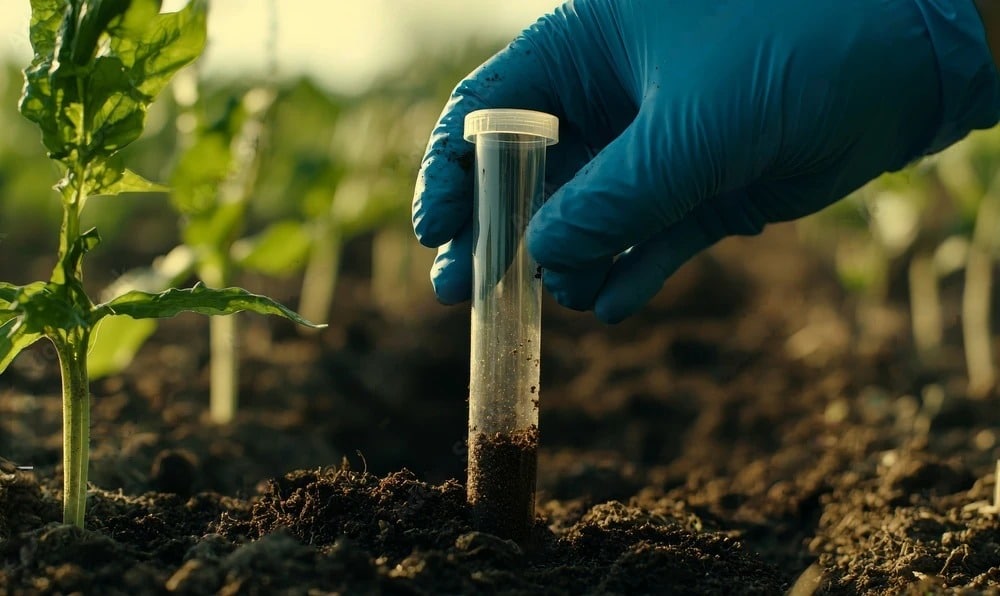Organic manure is a natural fertilizer made from decomposed plant and animal waste. It enriches the soil, boosts microbial activity, and ensures sustainable crop production by improving long-term soil fertility without harming the environment.
Introduction
Over the last century, agriculture has become increasingly dependent on chemical fertilizers to meet the food demands of a growing population. While these chemical inputs initially boosted yields, they have also led to serious consequences—soil degradation, loss of fertility, water pollution, and declining microbial activity. Farmers today face the challenge of maintaining productivity while restoring soil health.
One of the most reliable, age-old solutions lies in organic manure. Used for centuries, organic manure is made from natural materials such as plant residues, animal waste, and decomposed matter. Unlike chemical fertilizers that provide quick but short-term results, organic manure works gradually, building soil fertility, improving structure, and nurturing beneficial microorganisms. It remains a cornerstone of sustainable and organic farming practices worldwide.
What Is Organic Manure?
Organic manure is a natural soil amendment prepared from the decomposition of organic matter—plants, animals, and agricultural waste. It contains essential nutrients like nitrogen, phosphorus, and potassium (NPK), though in lower concentrations than chemical fertilizers.
What makes organic manure special is not just the nutrients it adds but its ability to:
Increase organic matter in soil.
Improve water-holding capacity.
Enhance microbial life for nutrient cycling.
In short, organic manure doesn’t just “feed the plant”—it feeds the soil, which in turn feeds the plant.
Types of Organic Manure
Farmyard Manure (FYM)
Prepared from animal dung, urine, crop residues, and fodder waste.
Rich in organic matter and provides a balanced supply of nutrients.
Traditionally used in almost every farming system.
Compost
Made from decomposed plant residues, kitchen waste, and organic materials.
Enriched with beneficial microbes that improve soil fertility.
Easy to prepare on farms and even in households.
Green Manure
Involves growing specific crops (e.g., sun hemp, clover, dhaincha) and plowing them into the soil while still green.
Improves soil nitrogen and organic matter.
Enhances soil texture and fertility.
Vermicompost
Produced using earthworms to decompose organic waste.
Rich in plant nutrients, beneficial enzymes, and microbial life.
Improves soil aeration and root growth.
Other Organic Manures
Bone meal (rich in phosphorus).
Oil cakes (residual waste from oil extraction, useful for nitrogen).
Poultry manure (high in nitrogen content).
How Organic Manure Works
Organic manure improves soil fertility not just by adding nutrients, but by transforming the soil environment:
Nutrient Supply
Provides slow-release nutrients like nitrogen, phosphorus, and potassium.
Supplies micronutrients often missing in chemical fertilizers.
Improves Soil Texture
Enhances soil porosity and aeration.
Helps sandy soils retain water and clay soils drain better.
Boosts Microbial Activity
Encourages beneficial soil microbes that break down organic matter.
Microbes improve nutrient cycling and availability to plants.
Increases Water-Holding Capacity
Soils rich in organic matter can hold more moisture, reducing irrigation needs.
Improves Root Growth
Loose, nutrient-rich soil structure allows roots to spread deeper and stronger.
Benefits of Organic Manure
Sustainable and Eco-Friendly
100% natural and biodegradable.
Reduces environmental pollution caused by chemical fertilizers.
Long-Lasting Soil Fertility
Improves soil health over time instead of depleting it.
Builds up organic matter for future crop cycles.
Cost-Effective for Farmers
Can be prepared from farm waste, reducing external input costs.
Suitable for small-scale and resource-poor farmers.
Better Crop Quality
Produces healthier crops with better taste and higher nutritional content.
Important for organic food markets.
Increases Soil Resilience
Helps soil withstand drought, floods, and climate variability.
Application Methods of Organic Manure
Direct Application
Organic manure spread directly onto fields before plowing or planting.
Improves soil fertility over time.
Composting Before Use
Waste materials composted to avoid pests and diseases before applying to crops.
Incorporation Before Sowing
Green manure crops plowed into the soil 3–4 weeks before sowing main crops.
Top Dressing
Applying well-decomposed manure around standing crops to enhance nutrient supply.
Vermicompost Tea or Liquid Manure
Liquid extracts applied through irrigation or foliar sprays for quick absorption.
Comparison with Chemical Fertilizers
| Feature | Organic Manure | Chemical Fertilizers |
|---|---|---|
| Nutrient Release | Slow and steady | Immediate but short-lived |
| Soil Health | Improves texture & microbial activity | Degrades soil over time |
| Cost | Often low-cost, farm-made | Purchased at higher expense |
| Environmental Impact | Eco-friendly, no pollution | Pollutes soil & groundwater |
| Crop Quality | Healthier, nutrient-rich produce | Higher yield but less nutrition |
Conclusion: Organic manure may act slowly, but its long-term benefits far outweigh the short-lived boost from chemicals.
Challenges & Solutions in Using Organic Manure
Availability of Raw Material
Farmers may not have enough animal waste or biomass.
Solution: Community composting units and farmer cooperatives.
Labor Intensive
Collecting, composting, and applying manure requires time and effort.
Solution: Use mechanized composters and vermicomposting units.
Quality Control
Poorly decomposed manure can spread pests and diseases.
Solution: Proper composting practices and farmer training.
Slow Nutrient Release
Nutrients are not immediately available like in chemical fertilizers.
Solution: Combine organic manure with bio fertilizers for faster results.
Conclusion
Organic manure is more than just a fertilizer—it is a soil rejuvenator. By improving soil fertility, increasing microbial activity, and enhancing crop quality, it plays a vital role in sustainable farming. While challenges like availability and slower results exist, the long-term benefits to soil, farmers, and the environment are undeniable.
As chemical-heavy farming continues to degrade soil health, the use of organic manure offers a proven, natural, and eco-friendly solution. Farmers who invest in organic manure today are not only securing better yields but also reviving the soil for future generations.





